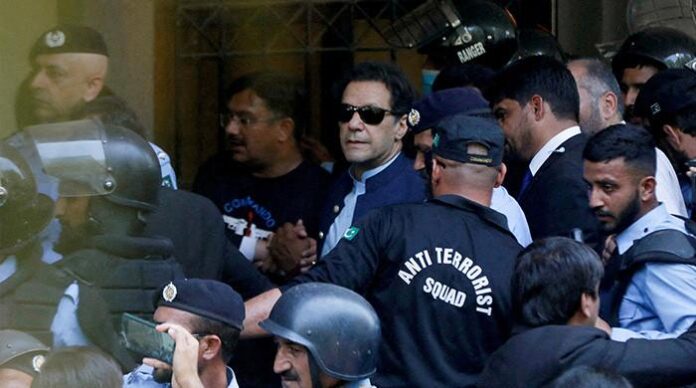In a recent development that has captured national attention, former Prime Minister Imran Khan has been found guilty in the Toshakhana case and has been sentenced to three years in prison. The verdict came after a lengthy legal battle and has significant implications for the political landscape of the country. In this article, we delve deep into the details of the Toshakhana case, its origins, the evidence presented during the trial, and the repercussions of the judgment.
Understanding the Toshakhana Case
The Toshakhana case revolves around allegations of misuse of authority by Imran Khan during his tenure as the Prime Minister. Toshakhana refers to the state treasury where gifts received by public officials from foreign dignitaries are deposited. The case emerged when it was alleged that Imran Khan received expensive gifts during his time in office but failed to declare them properly or deposited them in the Toshakhana as required by law.
The Legal Battle Unfolded
The legal battle began with investigations by the National Accountability Bureau (NAB) after complaints were filed against Imran Khan regarding the unreported gifts. The NAB conducted thorough inquiries, gathered evidence, and built a case against the former Prime Minister. The trial proceedings lasted for several months, during which both sides presented their arguments and evidence in front of the court.
Evidence Presented During the Trial
During the trial, the prosecution presented compelling evidence, including documents and witness testimonies, that supported the claim of Imran Khan’s failure to disclose the gifts and deposit them in the Toshakhana. The defense, on the other hand, tried to challenge the authenticity of some evidence and argued that the gifts were personal belongings and did not require declaration.
The Verdict and Its Impact
After considering all the evidence and arguments, the court pronounced its judgment, finding Imran Khan guilty of the charges against him. The three-year prison sentence has sent shockwaves through the political landscape, raising questions about the accountability of public officials and the implications for those in power.
Political and Social Repercussions
The Toshakhana case and Imran Khan’s conviction have sparked heated debates across the nation. Supporters of the former Prime Minister claim the case is politically motivated and an attempt to tarnish his image. On the other hand, his opponents view the verdict as a victory for accountability and a step towards cleansing the political system of corruption.
Conclusion
The Toshakhana case and its outcome have undoubtedly left a profound impact on Pakistan’s political arena. The conviction of Imran Khan, a prominent political figure, highlights the significance of accountability and transparency in governance. As the nation processes the verdict, it is crucial for the public and political leaders to reflect on the implications of such cases and work towards building a stronger and more just society.


